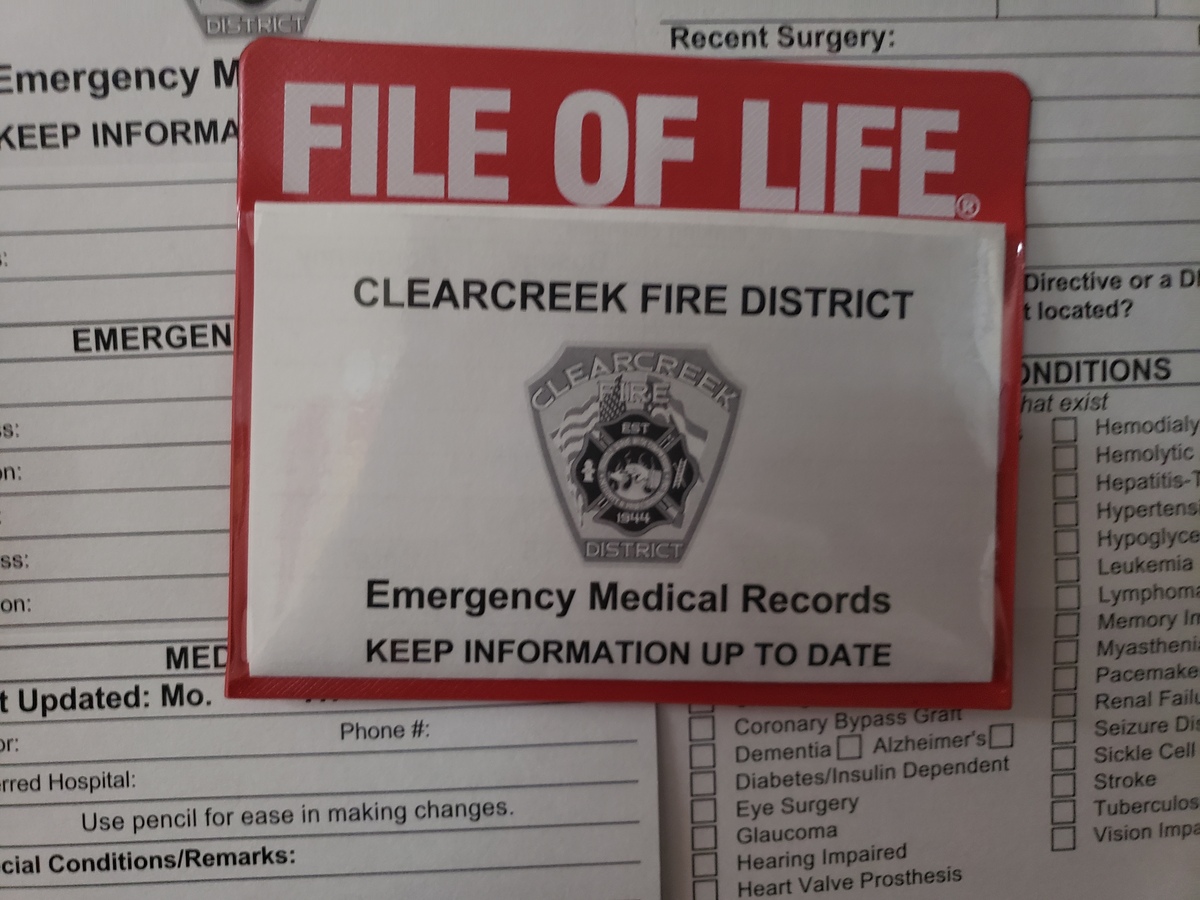File of Life / DNR
File of Life

The File of Life card contains vital personal medical information stored in an easily recognizable magnetic pocket. It includes your medical history, medications, and emergency contacts. The information on the card provides critical information to first responders so our paramedics can provide you with the proper medical treatment during an emergency.
We recommend a File of Life packet for everyone in a household, especially those with medical conditions or special needs. The convenient magnetic pouch, kept on the refrigerator door, makes it easily accessible for EMTs and empowers you to update your medical information as needed.
The File of Life form is a comprehensive tool that includes all the necessary information for your medical needs.
- Your contact information, including date of birth.
- The names and numbers of emergency contacts
- Your doctor's name and phone number
- A section to list special conditions
- A chart to record medications, dosage, and frequency
- Space to list recent surgeries or procedures
- A section for Living Will/Healthcare Power of Attorney information
- A section for Advanced Directives/Do Not Resuscitate information
- A checklist for medical conditions
- A checklist for common allergies
- Space to provide medical insurance information
File of Life packets are available in the lobby at Station 21.
For more information, feel free to contact Clearcreek Fire District at 937-748-2766.
Do Not Resuscitate Orders
Do Not Resuscitate (DNR) orders are documents that inform medical professionals of a patient’s choices regarding Cardiopulmonary Resuscitation (CPR). There are currently two types of orders: DNR Comfort Care (DNR-CC) and DNR Arrest. EMTs follow the respective standard protocol treatment when presented with either DNR-CC or DNR-Arrest. First responders follow Greater Miami Valley EMS Council protocols until provided with valid DNR documentation.
Is there a difference between a DNR order and a Living Will?
Yes. A Living Will is a legal document outlining end-of-life care that becomes active when patients cannot express their wishes due to terminal illness or a vegetative state. A Living Will, often part of Advanced Directives, is created at any life stage with assistance from an attorney. An authorized healthcare provider must complete DNR orders, which only pertain to CPR efforts; a DNR does not address, nor is it limited by, other medical conditions. A DNR does not mean “do not treat.” Patients can and will receive care for injury or illness.
For more detailed information and guidance on DNR orders, click here to visit the Ohio Department of Health.

